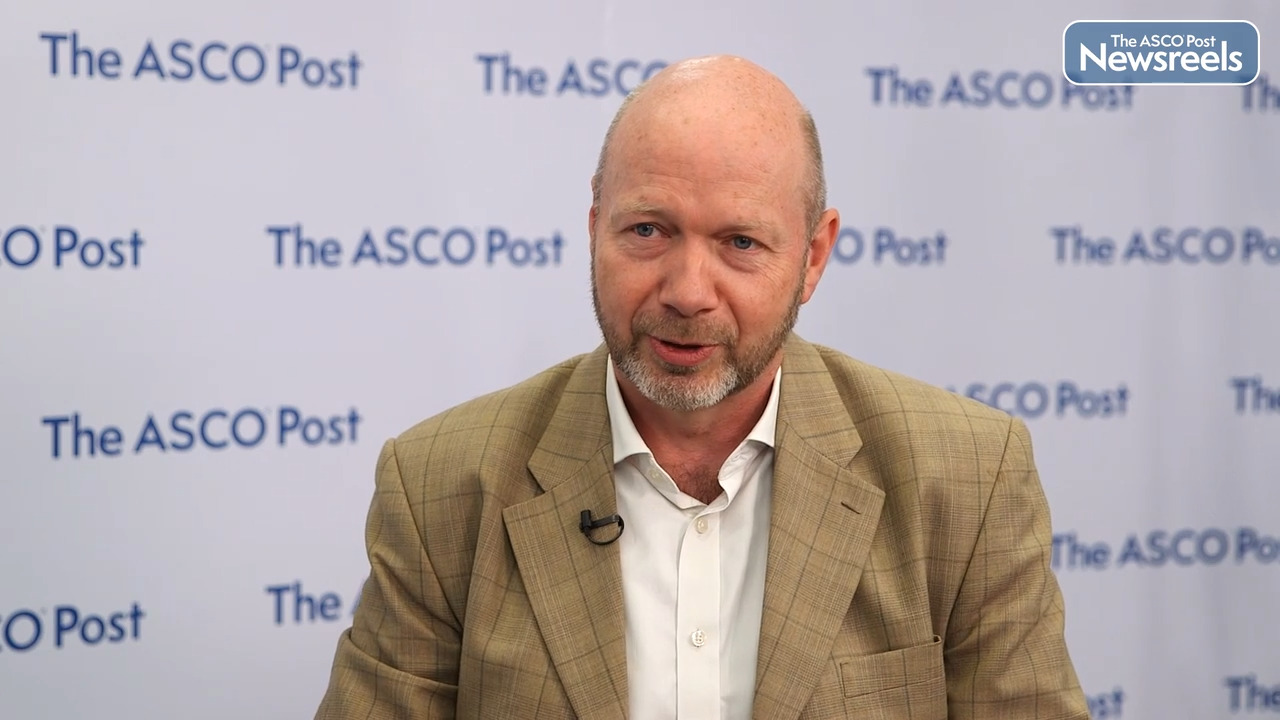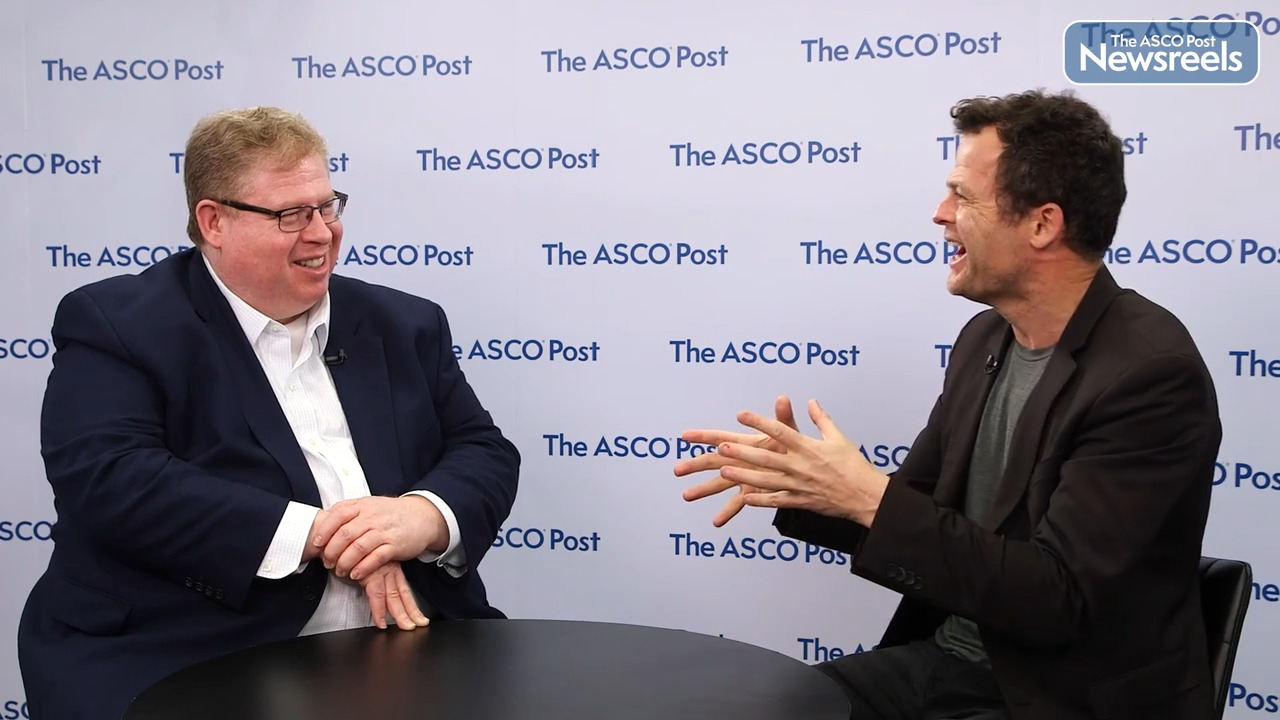Pamela L. Kunz, MD, of the Yale University School of Medicine, discusses new findings from the ECOG-ACRIN E2211 trial, which showed the longest progression-free survival and highest response rates with temozolomide plus capecitabine reported to date for patients with pancreatic neuroendocrine tumors. The presence of a deficiency of MGMT, the drug-resistance gene, was associated with greater odds of an objective response (Abstract 4004).
Transcript
Disclaimer: This video transcript has not been proofread or edited and may contain errors.
This study is a randomized phase two study through ECOG-ACRIN called E2211. And it's a study that examines capecitabine and temozolomide versus temozolomide alone in patients with advanced pancreatic neuroendocrine tumors. And this study was conceived at a time when we had few available agents for pancreatic NETs and there's a subset of patients with pancreatic neuroendocrine tumors who need an objective response, tumor shrinkage. And a number of our available agents don't yield responses. They yield prolonged stability. And so this was an opportunity to really test cytotoxic chemotherapy in this patient population. Until this time we had streptozocin, which is an IV alkylating chemotherapy for this patient population. It was FDA approved in the 1980s. And since then we haven't had many other cytotoxic chemotherapies available for this group of patients.
Temozolomide is an oral alkylating agent, and it has advantages over streptozocin in the sense that it is orally bioavailable, it crosses the blood brain barrier, and it has a better side effect profile. Temozolomide was selected as the comparator arm, compared to cape-tem, or capecitabine temozolomide, as we wanted both arms to examine temozolomide prospectively. This was a design that randomized 144 patients one to one, so there were 72 patients on each arm. The maximum treatment duration was 13 cycles, or about a year. And the primary endpoint was progression-free survival by local review and secondary endpoints included response rate, overall survival, and a safety assessment. And we had correlative analyses on MGMT, methylguanine methyltransferase, which is a DNA-repair enzyme that were reported as part of this study. And so, in terms of the endpoints, the interim analysis, which was reported at ASCO 2018, showed that there was a median progression-free survival benefit of capecitabine and temozolomide of 22 versus 14 months for temozolomide alone. And this updated analysis shows that there is no benefit or difference in overall survival between the arms, however, no statistical difference, I should say. However, there is a clinically relevant, significant difference of about five months between the two arms. The other really key part of this presentation is the MGMT correlative analysis. That indicates MGMT deficiency as defined by immunohistochemistry low or promoter methylation positive. Both of those at MGMT deficient are associated with increased response. So this study, because both arms contain temozolomide, is not a study that will help us to determine if MGMT is predictive of response, but we do see that it's associated with increased responses. The other interesting thing that we learned is that MGMT by IHC is more common, whereas MGMT by promoter methylation is not as common. And, of the patients that received both tests, it appears as if there are likely other reasons for MGMT down regulation outside of methylation. So, in summary, this is one of the first prospective randomized studies to demonstrate a prolonged median progression-free survival of 22 months. And there was no statistically significant difference in overall survival, but there was a clinically meaningful difference of about five months. And MGMT deficiency is associated with an increased response. The takeaways clinically are that capecitabine temozolomide really should be considered a standard of care and included in guidelines for patients with advanced pancreatic NETs. Routine use of MGMT testing is not recommended. However, for patients who really need objective responses, we can consider using MGMT testing. There are some follow up studies. So there are two that are in progress. One is a clinical trial. They're both actually through the national clinical trial network. One is a clinical trial looking at the adjuvant use of capecitabine temozolomide following surgery for patients with high risk pancreatic NETs. And it's looking at four months of capecitabine temozolomide versus placebo. And another is a clinical trial examining lutetium dotatate radioligand therapy versus capecitabine temozolomide in advanced pancreatic NETs.





